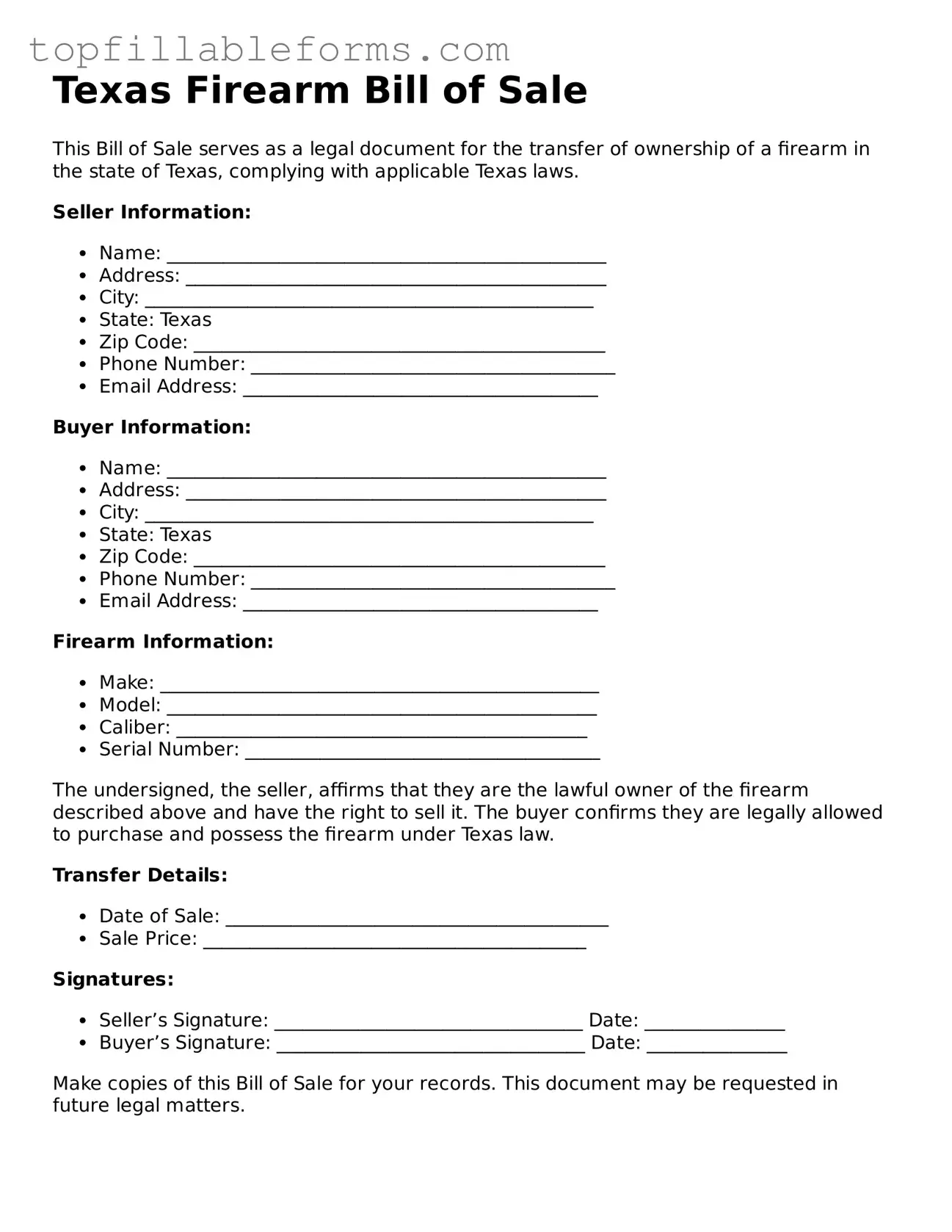Attorney-Verified Firearm Bill of Sale Template for Texas
The Texas Firearm Bill of Sale form is a legal document that records the sale and transfer of a firearm between individuals. This form serves as proof of ownership and can help protect both the buyer and seller in case of future disputes. Understanding its importance is crucial for anyone involved in firearm transactions in Texas.
Open Firearm Bill of Sale Editor Here

Attorney-Verified Firearm Bill of Sale Template for Texas
Open Firearm Bill of Sale Editor Here
Finish the form now and be done
Finish your Firearm Bill of Sale online by editing, saving, and downloading fast.
Open Firearm Bill of Sale Editor Here
or
▼ PDF File
